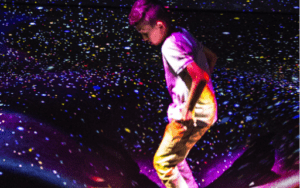Entertainment is a cornerstone of human culture, shaping our perspectives, influencing our emotions, and often serving as a source of joy and relaxation. However, the definition and perception of what constitutes entertainment have evolved significantly in the modern era. This article aims to delve into the multifaceted nature of entertainment, examining its diverse forms and questioning whether everything labeled as entertainment genuinely fits that description.
Evolution of Entertainment: From Traditional to Modern
- Traditional Entertainment: Historically, entertainment was associated with live performances, storytelling, and communal gatherings. Theaters, street performances, and oral storytelling were the primary sources of amusement.
- Transition to Modernity: With the advent of technology, the entertainment landscape transformed. Television, cinema, and radio brought entertainment directly into people’s homes. This transition not only widened the audience but also diversified the forms of entertainment available.
The Blurred Boundaries of Entertainment

- News and Infotainment: The traditional demarcation between news and entertainment has become increasingly blurred. The emergence of infotainment, where news is delivered with an entertainment angle, raises questions about the impact on the audience’s perception of reality.
- Reality TV and Authenticity: The rise of reality television blurs the line between genuine reality and scripted entertainment. Does the portrayal of reality on these shows truly represent authentic, unscripted life?
- Social Media and Entertainment: Social media platforms offer a wide array of content, blurring the line between personal narratives, education, and entertainment. People’s everyday lives become a source of entertainment for others.
The Moral and Ethical Dimensions
- Violence and Sensationalism: While violence and sensationalism often attract viewers, there’s a debate about the ethical implications of normalizing such content in entertainment.
- Cultural Representation: The entertainment industry’s responsibility to accurately represent diverse cultures and demographics is a subject of ongoing discussion. Are certain groups stereotyped or misrepresented in the name of entertainment?
- Impact on Mental Health: The constant barrage of entertainment and media can impact mental health. The obsession with perfection and comparison fostered by some entertainment content can contribute to anxiety and depression.
Entertainment as a Catalyst for Change
- Art as Social Commentary: Artistic expressions through various mediums, including movies, music, and literature, serve as a powerful tool for societal reflection and change.
- Education through Entertainment: Many educational programs and initiatives use entertainment as a medium to impart knowledge. Can this method effectively engage and educate audiences on critical issues?
- Empathy and Connection: Emotional storytelling in entertainment can foster empathy and understanding, forging connections between individuals from different backgrounds.
Entertainment, in its myriad forms, is both a reflection of society and a shaper of culture. While it offers escape and enjoyment, its boundaries and implications are increasingly complex. It is crucial to critically analyze the content consumed, questioning its impact on individuals and society at large. Understanding the multifaceted nature of entertainment helps us appreciate its positive aspects while encouraging a more responsible approach to its creation and consumption.

